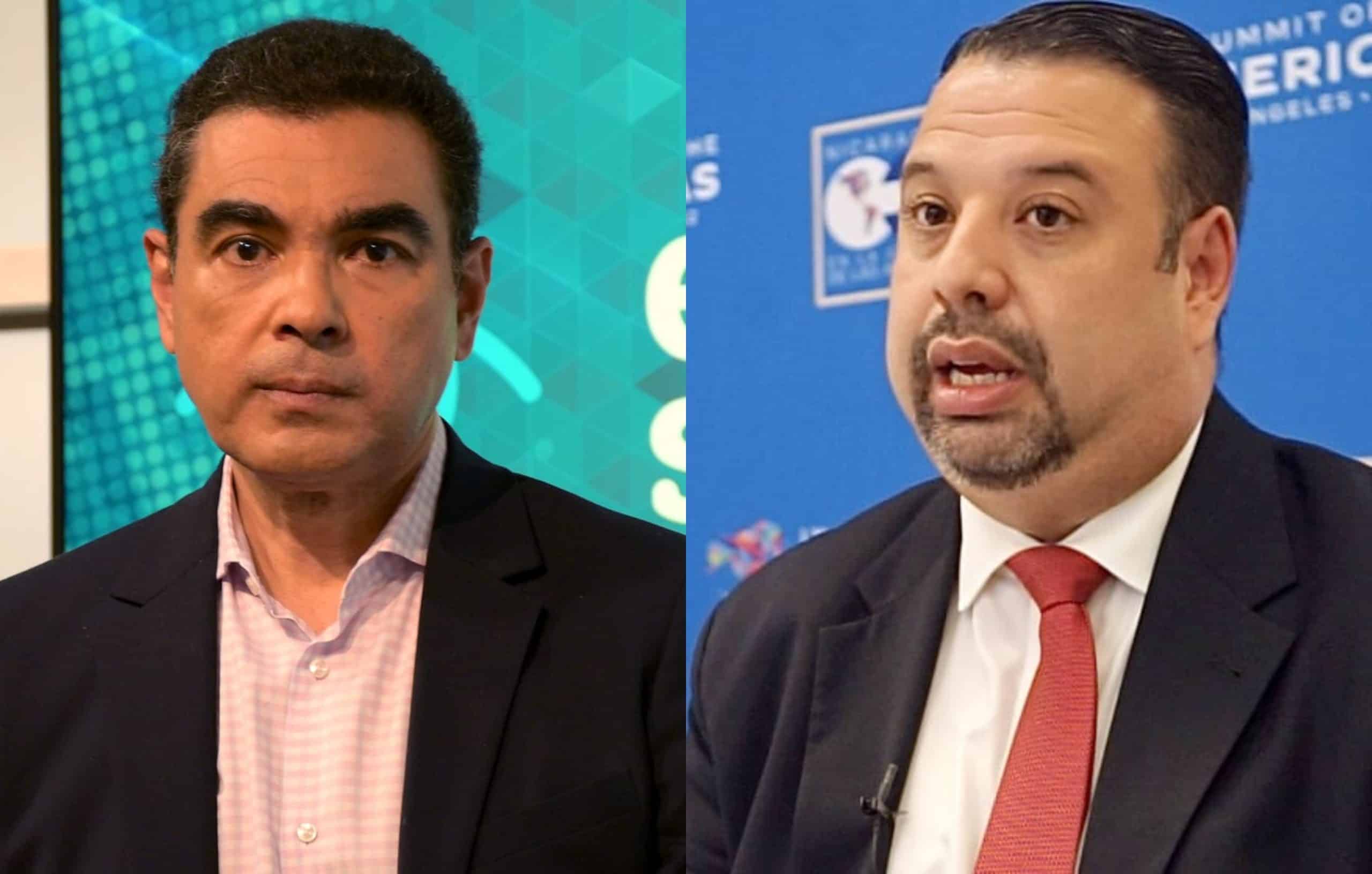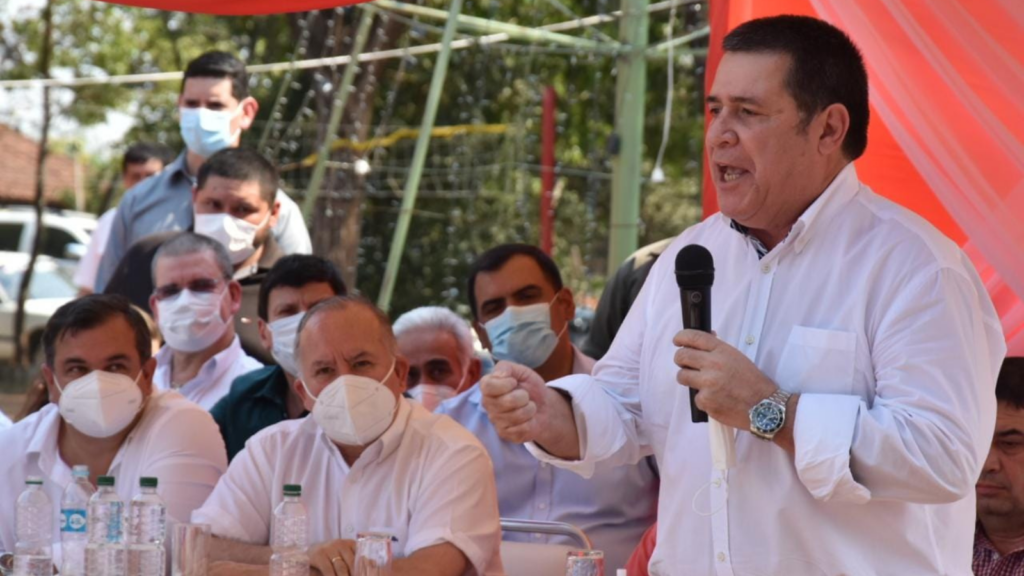A spokesman for the US National Security Council told Voice of America that the White House continues to support the nomination of Hugo F. Rodriguezas the next US ambassador to Nicaragua, despite the fact that Daniel Ortega’s regime withdrew its approval last Thursday, July 28.
According to the Voice of America, the US official assured that Rodríguez reiterated US policy in a “faithful and respectful” manner. Three political scientists consulted by CONFIDENCIAL warned that the rejection of Nicaragua pushes the relationship with the United States to the limit, which could even worsen.
For the American Eddy Acevedo, descendant of Nicaraguan parents and former foreign policy adviser to former congresswoman Ileana Ros-Lehtinen and now chief of staff and senior adviser to the Woodrow Wilson Center, andhe Department of State may choose to have the US headquarters run by a chargé d’affaires for “an undetermined period of time.”
Read: Daniel Zovatto: “Ortega will cause a hardening of the United States”
US officials are on vacation, which will end in mid-August in Washington.
Rodríguez is a career diplomat with many years of foreign policy experience who has advised the State Department on the situation in Nicaragua and Central America. He even traveled to Europe in 2020 and said that the pressure on the Nicaraguan Executive had to be stronger and that it would even include sanctions against the Nicaraguan Army.
Acevedo commented that anyone who assumes the position of US ambassador to Nicaragua will assume the same position as Rodríguez. The former legislative adviser explained that in reality many of Ortega’s actions have no logic and that they are probably due to a reaction of “frustration”, after they took away the sugar quota to Nicaragua, assigned in the trade agreement CAFTA.
Orozco: “Rejection was already prepared”
According to the Nicaraguan political scientist Manuel Orozco, a researcher at the Inter-American Dialogue (DI), the Ortega regime had already prepared its rejection of Ambassador Rodríguez, long before the hearing in the Senate.
Orozco added that in Nicaragua it was clear that Rodríguez would assume a firmer position in relation to the dictatorship and regarding how pressure tools have been used against it, beyond sanctions.
Last April, the researcher participated in a panel, organized by Open Filein which it was noted that the Law of Reinforcement of the Adherence of Nicaragua to the conditions for the electoral reform or Renacer It has more pressure instruments such as the review of Nicaragua’s participation in the CAFTA trade agreement.
“All of this (the rejection of Rodríguez) is consistent with the position of not communicating with any actor in the international community and of doing so only under its terms and with only two actors: the members of the Central American Integration System (SICA), to get Werner Vargas appointed as secretary general, and the international financial institutions,” said the political scientist.
Orozco added that Ortega has the international community kidnapped, since his doors are closed, with the clear aim of tiring it out so that they will let them do what they want.
Isolation
On July 28, Foreign Minister Denis Moncada Colindres described Rodríguez’s statements during the confirmation hearing at the Senate Foreign Relations Committee as “interfering.”
Rodríguez said that he was committed to working with Congress and international partners to press for the return of democracy, respect for human rights and the freedom of political prisoners in Nicaragua.
“Removing Nicaragua from CAFTA (Free Trade Agreement with Central America and the Dominican Republic) is a potentially very powerful tool and something that we seriously consider,” Rodríguez added.
Last Sunday, political analyst Daniel Zovatto explained in an extensive interview on the television program This week that Ortega’s decision will cause a hardening of the United States, because it is raising the pulse of the dictatorship with that country.
On July 19, Ortega ruled out a dialogue with the Biden Administration under the argument that doing so is putting a noose around his neck, and after a 40-minute speech loaded with anti-imperialist rhetoric, while internally he continues to be denounced for serious abuses of human rights.
“They are building, in the sight of the international community, a regime like we have never seen, similar to that of North Korea, based on a family dynasty,” Zovatto lamented in the conversation with Carlos Fernando Chamorro.
Dictatorship, “ridiculously challenging”
A diplomat consulted, on condition of anonymity, explained from a technical point of view that the process of requesting consent for the appointment of an ambassador by the recipient country is normally done confidentially.
For him, Ortega’s rejection of Ambassador Hugo F. Rodríguez is a contradictory, violent and “ridiculously challenging” decision.
Protected by the Vienna Convention, the receiving countries are not obliged to state the reasons for their refusal, so by custom it is expressed through silence, which after a reasonable period of time forces the other country to nominate another person.
For the same source, when the position of the US against the Ortega dictatorship is known, its public reaction is “disproportionate, tense and puts diplomatic relations at risk” between the two countries.
“All (this occurs) in the midst of a relationship marked by serious political contradictions that have led to the imposition of sanctions on numerous officials for corruption and human rights violations. They are all elements that indicate that diplomatic relations will most likely remain at a lower level, of business managers, for some time,” the diplomat agreed.
















